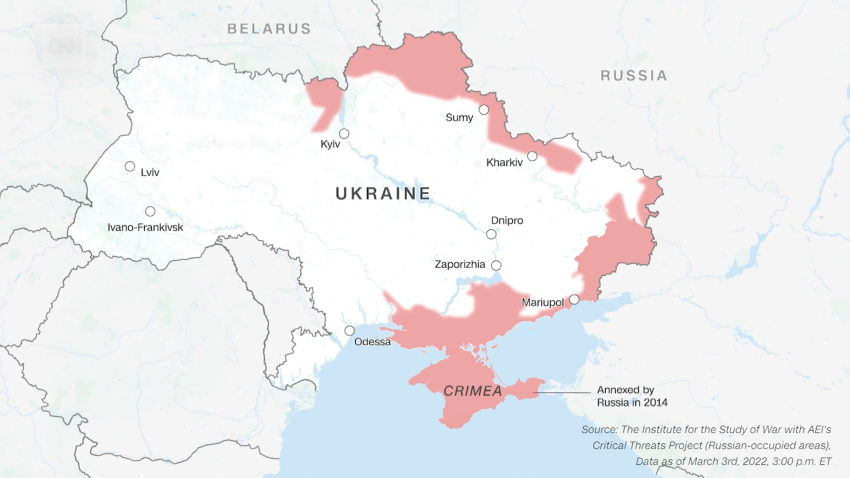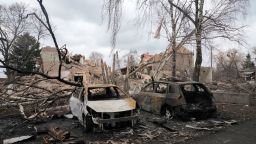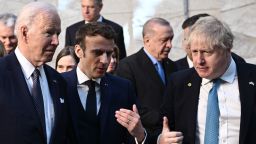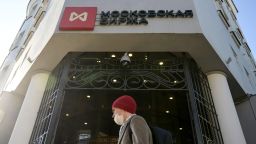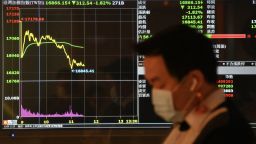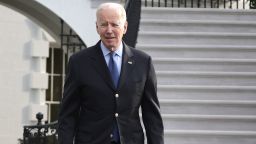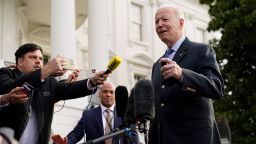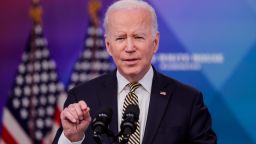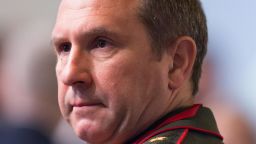The UN General Assembly overwhelmingly voted to call on Russia to Ukraine and provide more civilian protection as Russia’s month-long invasion of Ukraine continues.
New footage shows the extent of destruction in some Ukrainian cities caused by Russian forces as Western leaders gather in Brussels to conduct extraordinary sessions of NATO, the European Council and the G7.
Here’s a look at other key developments:
Civilian casualties: The civilian death toll in Ukraine has exceeded 1,000 since the start of Russia’s invasion of Ukraine, the Office of the UN High Commissioner for Human Rights said Thursday — warning that “the actual figures are considerably higher.”
“Most of the civilian casualties recorded were caused by the use of explosive weapons with a wide impact area, including shelling from heavy artillery and multiple-launch rocket systems, and missile and air strikes,” according to the OHCHR.
In a statement, the UN body detailed the 1,035 civilian deaths as “214 men, 160 women, 14 girls, and 28 boys, as well as 48 children and 571 adults whose sex is yet unknown.”
Destruction of cities in Ukraine: As Russia attempts to link advances made in the Kharkiv region of Ukraine with its stronghold in the far east of the country, the city of Izyum has found itself caught up in terrible fighting, a local official said.
Council deputy Max Strelnyk told CNN the town had been “completely destroyed” by Russian aircraft and artillery, even as fierce battles continued inside Izyum for control of the ground.
Strelnyk said Russian troops occupied the northern part of the city and were attempting to cross the Seversky Donets River — which makes a U-shape as it runs through the town — to take the southern part as well, currently held by Ukrainian armed forces.
CNN has previously reported that much of central Izyum has been destroyed by military strikes.
A Russian missile strike hit a shopping mall parking lot in Kharkiv, killing six people and injuring 15, regional governor Oleg Syniehubov said.
People were waiting outside a post office in the mall to receive humanitarian aid, Syniehubov added.
Video of the incident, which has been geolocated by CNN, shows people attending to several apparent casualties in the parking lot.
NATO will reinforce its chemical, biological and nuclear defense systems on fears Russia is planning to use such weapons against the people of Ukraine, Secretary General Jens Stoltenberg said Thursday.
“Our top military commander General Walters has activated NATO’s chemical, biological, radiological and nuclear defense elements, and allies are deploying additional chemical and biological and nuclear defenses to reinforce our existing and new backing groups,” he told reporters in Brussels following an extraordinary meeting of heads of state and government.
UN General Assembly votes to call on Russia to end the war in Ukraine: The United Nations General Assembly has again delivered a resounding diplomatic blow to Russia, with an overwhelming vote calling for Russia to stop its war on Ukraine, plus more protection of civilians.
There were 140 countries in favor, five opposed and 38 abstentions on a resolution sponsored by the United States and nearly two dozen other countries. A few weeks ago, 141 countries backed a resolution deploring Russia’s invasion.




